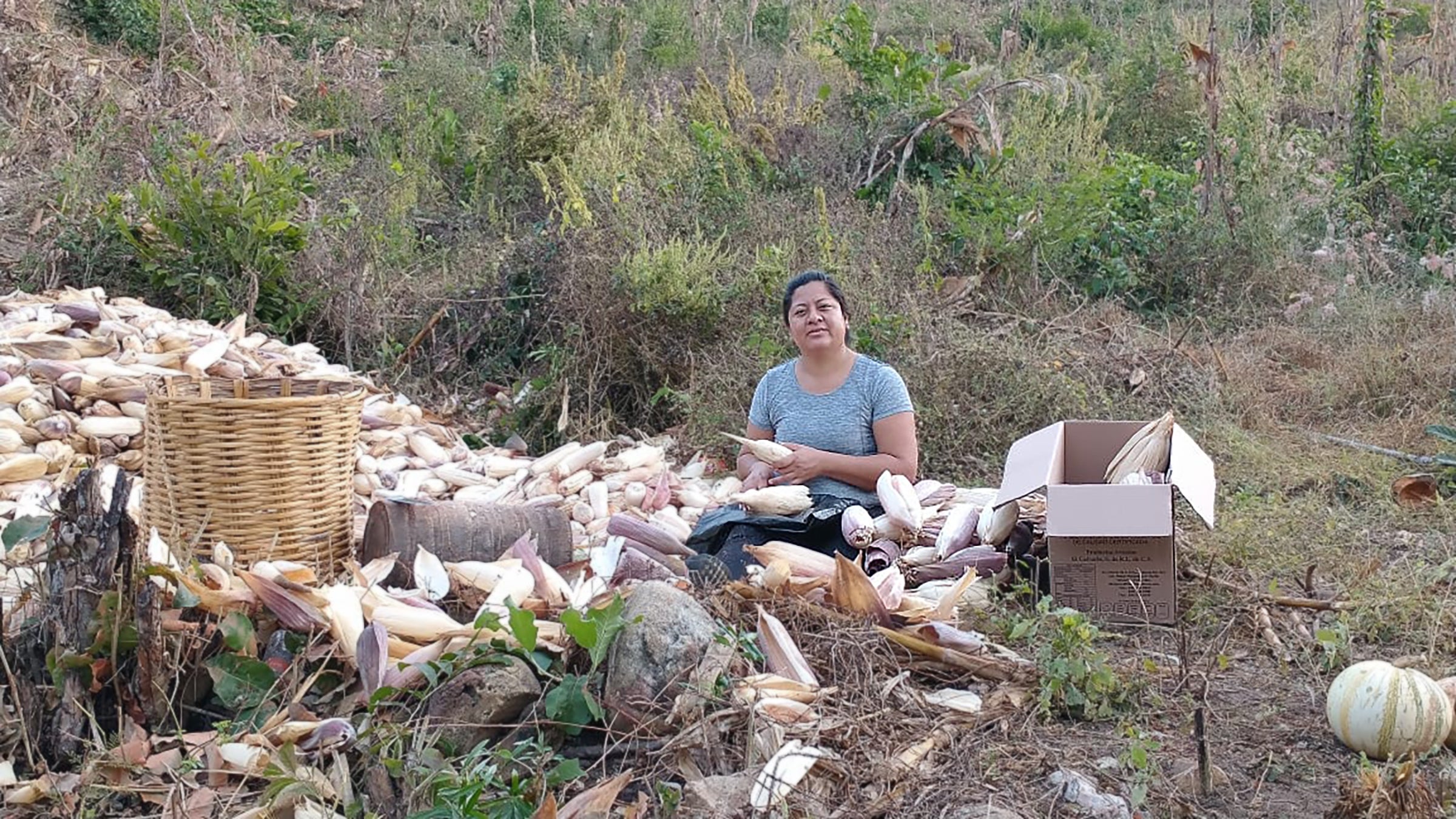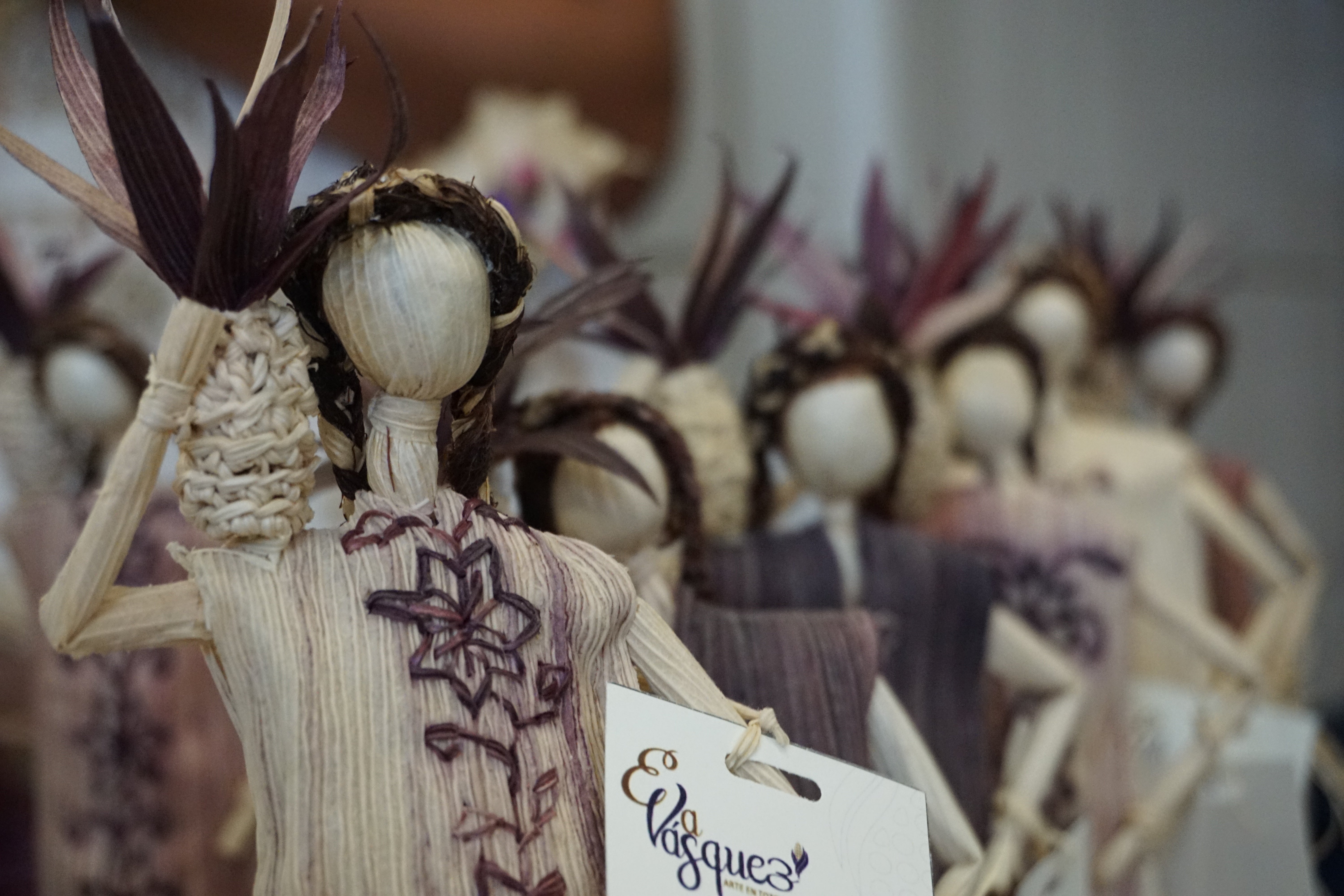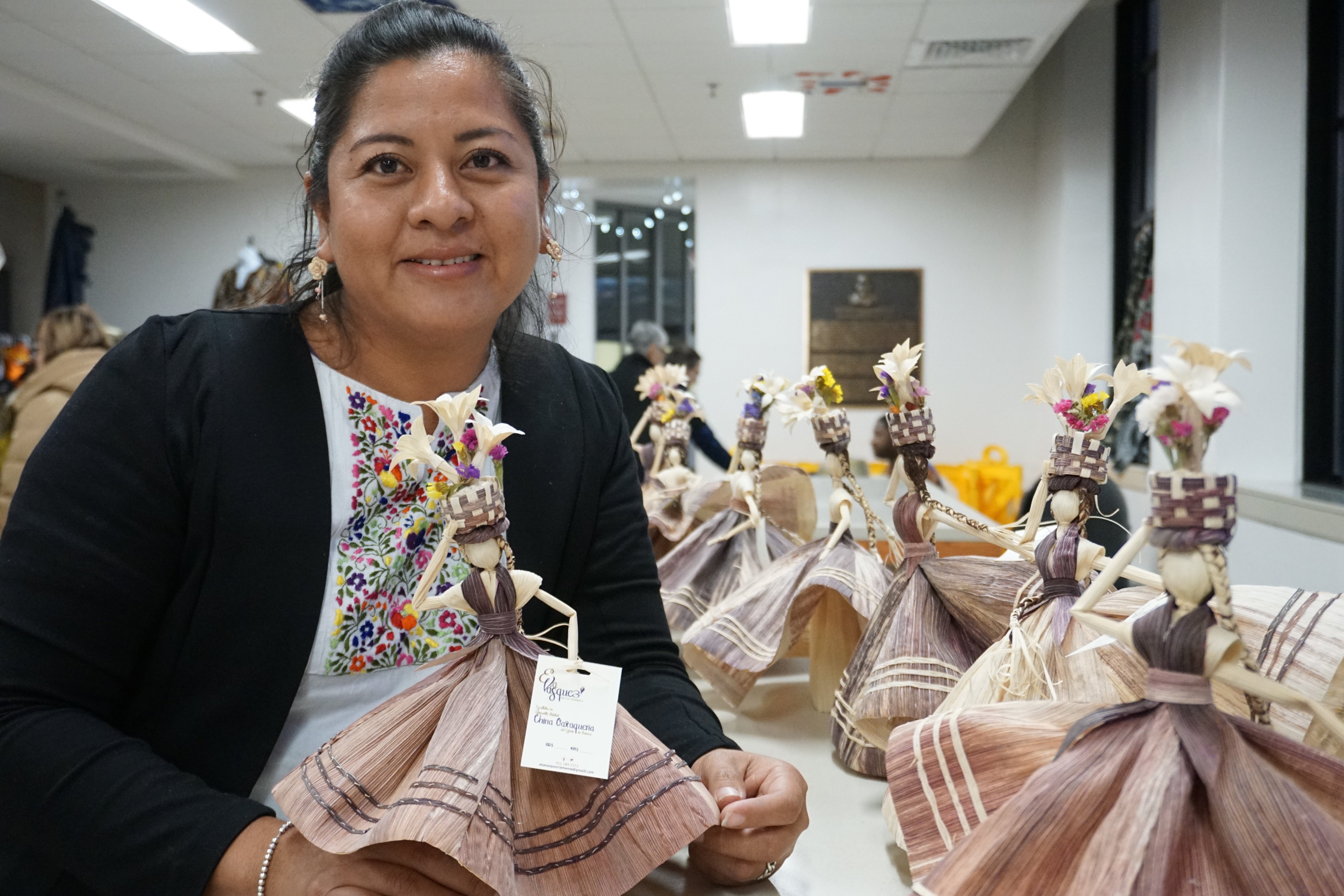
Eva Vasquez Clemente is a single mother of two daughters, an artist, and an auxiliary police officer in the Oaxaca State Public Security Secretariat in Mexico. She comes from the Zapotec-Mixtec coast of Oaxaca. Vasquez makes exquisitely detailed corn husk dolls that represent traditional women dancers of the renowned annual Guelaguetza Festival, where the 16 Indigenous Peoples of the 8 regions of the State of Oaxaca meet. She creates her pieces entirely by hand with organic products and natural colors.
Vasquez uses the dry leaves that cover the ear of corn, known in Mexico as totomoxtle, normally used to prepare tamales. Corn is the most important element in her community’s diet and an integral part of their identity. The leaves are selected from the family and community corn harvest, with various shades of red, brown, cream, and purple. To make her creations, Vasquez removes the blades carefully to cut large pieces. Then, immediately before use, she wets them with water to make them malleable again, cuts the pieces that she needs, and sews them together in knots using the threads of the corn husk.

Eva Vasquez Clemente selecting corn husk for her dolls from her milpa (corn plot) after the harvest. Photo courtesy of Eva Vasquez Clemente.
During festivities in Vasquez’s town, women use baskets to dance. “When my mother said that they were going to decorate the baskets for the holidays, since we had no money, we used to make them from totomoxtle. My mom always liked the way we did it and people admired it,” Vasquez recalls. “On one occasion in the church, they told us not to pollute, so once at a party in my town, I decorated the streets with totomoxtle figures without using plastic or paper and everyone liked it.”
Vasquez started taking part in competitions when she moved to Oaxaca City. “I was improving my technique and I invented the embroidery on the sheet, because I saw that none of the participants did it. My imagination taught me and the challenge of overcoming the work of others and doing something different. In the contest they don’t let you use industrialized things, it all has to be natural,” she says.

Life as an artist is not easy, in part, as Vasquez observes, because “people do not appreciate art...[they] go to large stores to buy things that are not art, but copies made in factories.” While at first she was only creating for competition, Vasquez received a commission from the Textile Museum of Oaxaca. “[They] called me and told me that they wanted to sell my pieces. Before that, I gave them away. I realized that I, myself, did not recognize the value of my pieces, and so I adjusted my prices to make it fairer and the market improved a lot.”
Vasquez shares her experience participating in the Cultural Survival Bazaars, “The Bazaars were an opportunity to feel that I am free, that I can travel and see places and people. I have only participated once in person, but the simple fact of being there brought a lot of profit. Disseminating the work and making ourselves known is a satisfaction, knowing that you make people feel something when they see your pieces. When you have found something that you do well and uniquely, it is something that fills you as a person. You no longer ask for anything from life, because this gives you satisfaction, motivation, a way to heal, a way to forget the pain or the sadness through making art. It helps you to grow emotionally and as a person, because you know that what you do is something that people admire and you make them feel beautiful.”

Eva Vasquez Clemente at the Cultural Survival Bazaar at Cambridge Rindge and Latin High School, December 2019. Photo by Danae Laura.
She continues to say, “I would like to be an inspiration to women who are sometimes alone, or like me, have lived through a situation of domestic violence. I put up with many things, but I decided to leave and find my way. I tell women not to despair and to know that it is possible. I want to inspire more women to do it and get ahead, because you can be a mother, a worker, a police officer, and an artist.”
All in-person Cultural Survival Bazaars in 2021 are postponed due to the COVID-19 pandemic. To support and buy directly from our Bazaar artists, visit our directory of artists at bazaar.cs.org.
-- Bia’ni Madsa’ Juárez López (Ayuuk/Binnizá) is Cultural Survival Program Manager for the Keepers of the Earth Fund.
